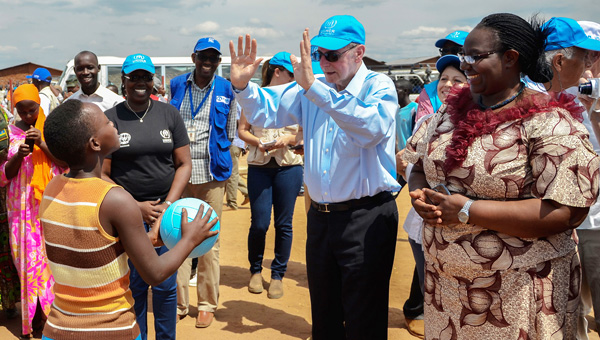Conflict Analysis and Mediation Course 2024 (CAM 24)
Conflict Management

Course Fee: This is a sponsored course hence KAIPTC shall be responsible for tuition, accommodation, transportation (airport arrival/departure) and feeding for the duration of the course. However, KAIPTC shall NOT be responsible for external participant’s (outside Ghana) ticket for travel. Participants who will require visa on arrival will also be responsible for the cost of their visas.
Terms and Conditions:
- The course will be conducted ONLY in English;
- Every participant will have to prove adequate health insurance coverage, which should include Covid 19 before travelling to the Centre. Additionally participants must have been vaccinated and possess a COVID-19 and yellow fever vaccination cards. Those who have not taken the COVID-19 vaccine must be ready to undergo a PCR test if need be. KAIPTC will not bear any health or accident costs for any participant.
| In short | |
| Course Date/Duration | Mon 29 April – 10 May 2024 |
| Course Capacity | 30 participants |
| Target Group | The target groups include those involved in mediation and mediation related activities. These include the following;
a. African Union, ECOWAS, UN Missions in Africa and other Regional Economic Communities (RECs).
b. Members/staff of Institutions undertaking/supporting mediation efforts. c. Practitioners in mediation related jobs are also encouraged to apply. d. Persons working in organizations/institutions in countries in transition. e. Persons working in organizations likely to be involved in mediation in countries in transition. f. Members of parties in disputes. g. Traditional leaders and other interested persons from local communities. |
| Course Language | English |
| Application Deadline | 1 March 2024 |
Introduction/Background
The end of the Cold War in the 1990s saw an increase in violent armed conflicts especially within states and involving non-state actors. The implications of these violent armed conflicts globally, but especially within the African continent, adversely impacted human and state security.
The security implications of violent armed conflicts also rekindled the interest in international peace and conflict resolution, including the growth and an increased focus on national, local, regional and international tools and response mechanisms for international conflict resolution. In this context, conflict analysis and mediation have continued to constitute a fundamental part of efforts at understanding the causes, trends and dynamics of conflict, and the role that that they play in conflict resolution.
At the same time, the increase in opportunities for peace-making by continental and regional organizations such as the African Union (AU), Economic Community of West African States (ECOWAS) and by Civil Society Organizations (CSOs), including Non-Governmental Organizations (NGOs) and Community Based Organizations (CBOs) has resulted in an exponential growth in mediation interventions and associated conflict resolution activities at multiple levels.
The Conflict Analysis and Mediation (CAM) Course was designed in 2013 as a collaboration between the Kofi Annan International Peacekeeping Training Centre (KAIPTC) and Crisis Management Initiative (CMI), to match the need to intervene in conflicts on the one hand, and the need to increase understanding of the different tools, frameworks and aspects of conflict analysis and mediation among stakeholders for conflict prevention, management and resolution on the other hand.
Course Rationale
The Conflict Analysis and Mediation Course is designed to build the knowledge and skills base of individuals to fill the capacity gaps of mediators and mediation support teams on the continent. It is also to provide the enabling environment for professional conflict resolution participants, the sharing of experiences and lessons learned in multi-track mediation and peace processes.
Course Aim
The aim of the course is to strengthen participants’ ability to undertake critical, analytical and practical conflict analysis in mediation and negotiation.
Course Objectives
The main objectives of the course are to:
- Enhance participants’ knowledge, skills and attitudes for effective conflict analysis and mediation.
- Deepen their understanding and awareness of the challenges and opportunities of the African Peace and Security landscape.
- Enable them understand key conflict analysis concepts and evaluate conflict analysis frameworks and underlying conceptual tools.
- Enable them Understand at a practical level, the connections between conflict analysis and mediation.
Target Group
The target groups include those involved in mediation and mediation related activities. These include the following;
- African Union, ECOWAS, UN Missions in Africa and other Regional Economic Communities (RECs).
- Members/staff of Institutions undertaking/supporting mediation efforts.
- Practitioners in mediation related jobs are also encouraged to apply.
- Persons working in organizations/institutions in countries in transition.
- Persons working in organizations likely to be involved in mediation in countries in transition.
- Members of parties in disputes.
- Traditional leaders and other interested persons from local communities.
Training Methodology
Through a combination of lectures, simulation exercises, video/movie presentations, group work, role-plays, case study analysis, quizzes and discussions, the course seeks to enhance participant’s theoretical as well as practical understanding of Conflict Analysis and Mediation in the Region. Participants will play active roles in the learning process under the guidance of a team of experienced facilitators. Following the completion of each module, participants will be encouraged to participate in, group discussions to further their understanding of the concept’s more nuanced arguments.
Modules of the course
- Conflict and Conflict Analysis.
- Negotiation and Mediation.
- Diplomatic Considerations in Mediation.
- Cultural Considerations in Mediation.
- Gender and Inclusive-Mediation Strategies.
- AU/ECOWAS Approach to Mediation.
How to Apply
Interested applicants are requested to kindly fill and submit an online application. Access the application by pressing the “How to Apply” button.
Contact at KAIPTC
| Mrs Marylyn Agblor
Training Coordination Officer Tel. 00 233 (0) 302 718200 Ext. 1012 Fax. 00 233 (0) 302 718201 Email: marylyn.agblor@kaiptc.org Email: training.coordination@kaiptc.org
Col Daniel Agbekor Course Director Tel. 00 233 (0) 302 718200 Ext. 1035 Fax. 00 233 (0) 302 718201 Email: Daniel.amenyo-agbekor@kaiptc.org |

